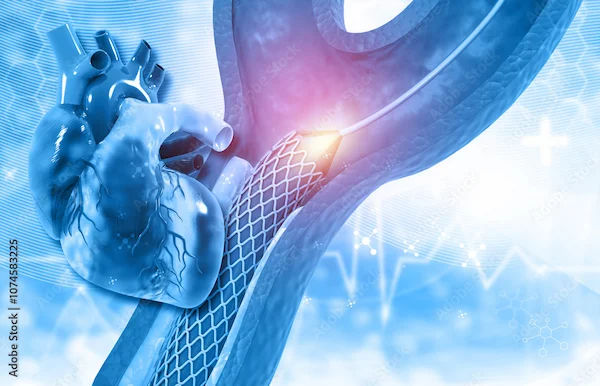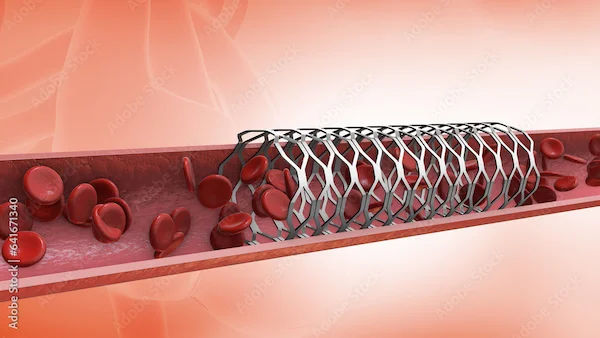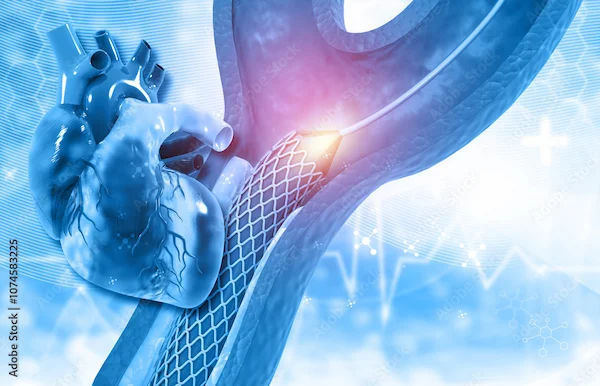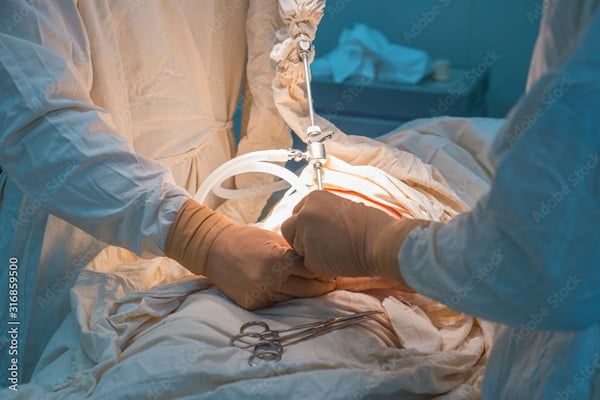Stroke After Bypass Surgery Treatment
Understand the urgent treatment and complex recovery for stroke occurring after bypass surgery. Learn about rehabilitation, support, and improving outcomes.

Written by Dr.Sonia Bhatt
Last updated on 20th Jul, 2025
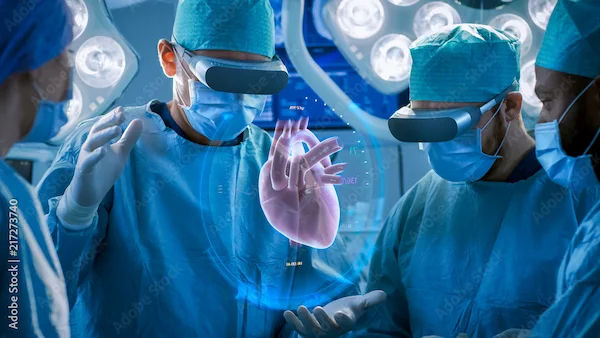
Introduction
Undergoing bypass surgery is a major medical procedure aimed at improving heart health, but like any surgery, it comes with potential risks—one of which is a stroke. A stroke occurs when blood flow to a part of the brain is interrupted, leading to brain cell damage. While strokes after bypass surgery are rare, they can have serious consequences.
This article will help you understand why strokes may happen after bypass surgery, the warning signs, and how to reduce risks for a smoother recovery.
What Causes a Stroke After Bypass Surgery?
During bypass surgery, doctors reroute blood flow around blocked arteries to improve circulation to the heart. However, this process can sometimes lead to complications that increase stroke risk, including:
1. Blood Clots – Surgery can trigger clot formation, which may travel to the brain and block blood flow.
2. Low Blood Pressure – Temporary drops in blood pressure during surgery can reduce oxygen supply to the brain.
3. Atherosclerosis (Plaque Buildup) – If fatty deposits in blood vessels break loose, they can block brain arteries.
4. Irregular Heartbeat (Atrial Fibrillation) – Some patients develop abnormal heart rhythms postsurgery, increasing stroke risk.
5. Inflammation & Stress on the Body – Major surgery puts stress on the body, sometimes affecting brain blood flow.
Warning Signs of a Stroke After Surgery
Recognizing stroke symptoms early is crucial for quick treatment. Remember the acronym FAST:
Face drooping (one side looks uneven when smiling)
Arm weakness (difficulty raising one arm)
Speech difficulty (slurred or confused words)
Time to call emergency help
Other symptoms may include:
Sudden dizziness or loss of balance
Blurred or lost vision in one eye
Severe headache without a known cause
If you or a loved one experiences these symptoms after bypass surgery, seek medical help immediately.
Consult Specialists For personalised Tips
Who Is at Higher Risk?
Certain factors increase the likelihood of stroke after bypass surgery:
Age (older adults are more vulnerable)
History of previous strokes or ministrokes (TIAs)
High blood pressure or diabetes
Smoking or excessive alcohol use
Existing heart disease or carotid artery disease
If you have any of these risk factors, discuss preventive measures with your doctor before surgery.
How to Reduce Stroke Risk After Bypass Surgery?
While not all strokes can be prevented, these steps can help lower the risk:
Before Surgery:
Control Blood Pressure & Cholesterol – Follow your doctor’s advice on medications and diet.
Quit Smoking – Smoking increases clot formation and artery damage.
Manage Diabetes – Keep blood sugar levels in check to protect blood vessels.
After Surgery:
Take Prescribed Blood Thinners – Medications like aspirin or clopidogrel help prevent clots.
Stay Hydrated – Proper hydration improves blood circulation.
Move Safely – Gentle movement (as advised by your doctor) prevents blood clots.
Monitor Heart Rhythm – Report any irregular heartbeats (palpitations) immediately.
Lifestyle Changes for Long Term Protection:
The lifestyle changes includes:
Eat a Heart Healthy Diet – Focus on fruits, vegetables, whole grains, and lean proteins.
Exercise Regularly – Walking and light activities improve circulation.
Limit Alcohol – Excessive drinking raises stroke risk.
Recovery After a Post Bypass Stroke
If a stroke occurs, early treatment improves recovery chances. Treatment may include:
Clotbusting medications (if given within hours of symptoms)
Rehabilitation therapy (physical, speech, or occupational therapy)
Long-term medications to prevent future strokes
Rehabilitation is key—many patients regain function with proper care and support.
When to Consult a Doctor?
If you or a family member has undergone bypass surgery, stay alert for stroke symptoms. Regular followups with your cardiologist are essential.
Need expert advice?
You can consult Apollo24|7’s specialists for postsurgery care and stroke prevention strategies. Book an appointment easily online for personalized guidance.
Final Thoughts
While a stroke after bypass surgery is uncommon, being aware of the risks and symptoms can save lives. By managing underlying health conditions, following medical advice, and adopting a heart healthy lifestyle, you can significantly reduce the chances of complications. Stay informed, stay proactive, and prioritize your heart and brain health for a smoother recovery journey.
Consult Top Cardiologists
Consult Specialists For personalised Tips

Dr. S B Bhattacharyya
Cardiologist
22 Years • MBBS, MD(General Medicine),DM (Cardiology)
Kolkata
Gariaheart Clinic, Kolkata

Dr. Amit. A. Bharadiya
Cardiologist
12 Years • MBBS, MD General Medicine, DNB Cardiology, FSCAI
Maharashtra
Surabhi Hospital, Maharashtra, Maharashtra
Dr. Jayarajah Mariappan
Cardiologist
45 Years • MBBS, MD(GEN MEDICINE), DM(CARDIOLOGY)
Chennai
Sooriya Hospital, Chennai
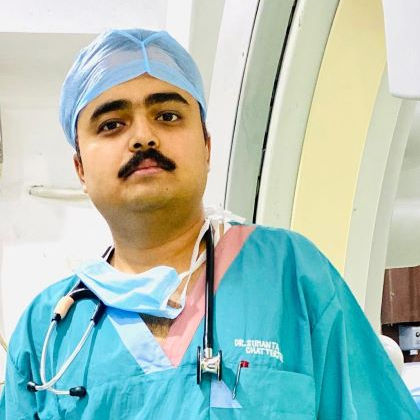
Dr. Sumanta Chatterjee
Cardiologist
12 Years • MBBS,MD General Medicine,DM Cardiology
Kolkata
HealthYou Speciality Clinic & Diagnostics., Kolkata
(25+ Patients)
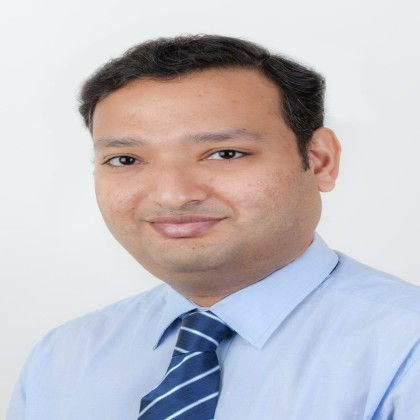
Dr. Mangesh Danej
Cardiologist
8 Years • MBBS, MD (General Medicine), DNB (Cardiology)
Pune
Dr Danej clinic, Pune
(375+ Patients)
Consult Top Cardiologists

Dr. S B Bhattacharyya
Cardiologist
22 Years • MBBS, MD(General Medicine),DM (Cardiology)
Kolkata
Gariaheart Clinic, Kolkata

Dr. Amit. A. Bharadiya
Cardiologist
12 Years • MBBS, MD General Medicine, DNB Cardiology, FSCAI
Maharashtra
Surabhi Hospital, Maharashtra, Maharashtra
Dr. Jayarajah Mariappan
Cardiologist
45 Years • MBBS, MD(GEN MEDICINE), DM(CARDIOLOGY)
Chennai
Sooriya Hospital, Chennai

Dr. Sumanta Chatterjee
Cardiologist
12 Years • MBBS,MD General Medicine,DM Cardiology
Kolkata
HealthYou Speciality Clinic & Diagnostics., Kolkata
(25+ Patients)

Dr. Mangesh Danej
Cardiologist
8 Years • MBBS, MD (General Medicine), DNB (Cardiology)
Pune
Dr Danej clinic, Pune
(375+ Patients)
